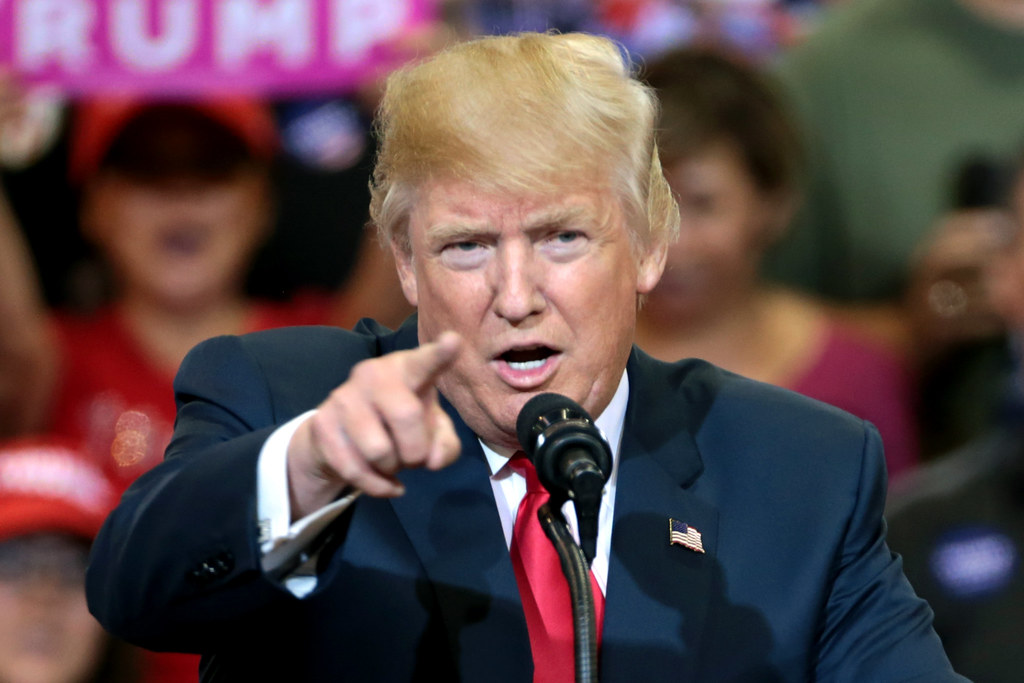by Rabbi Steven Pruzansky in the Israel 365 News
Donald Trump’s interview with Time magazine made headlines for all the wrong reasons. The media typically focused on his criticism of Prime Minister Netanyahu (“I had a bad experience with him”) and his legal woes – and missed the sea change in his thinking on Israel and the Middle East that, if maintained, will reshape the region, its politics and diplomacy, long after his litigation is behind him.
Asked whether he thought the outcome of the war in Gaza “should be a two-state solution between Israelis and Palestinians,” Trump responded: “Most people thought it was going to be a two-state solution. I’m not sure a two-state solution anymore is gonna work… There was a time when I thought two states could work. Now I think two states is going to be very, very tough. I think it’s going to be much tougher to get. I also think you have fewer people that liked the idea. You had a lot of people that liked the idea four years ago. Today, you have far fewer people that like that idea…Because children grow up and they’re taught to hate Jewish people at a level that nobody thought was possible.”
Enjoy what you're reading? Subscribe for more!
Scrutinizing Trump’s words behind the awkward syntax, the presumed Republican nominee has demonstrated once again that his instincts are far more often on target than those of the State Department, world diplomats, and the tendentious journalists who have clung to the two-state illusion for more than two decades. In the process, they have weakened Israel, harmed American interests, and destabilized the region.
Interestingly, Trump’s conclusion – rooted in pragmatism – confirms the policy of the Republican Party that was first adopted in July 2016. Before the convention that nominated Trump, the Republican Party approved a platform that rejected the establishment of a Palestinian state and gave Israel the freedom to negotiate a deal with the Palestinians on its own terms without external pressures. “We oppose any measures intended to impose an agreement or to dictate borders or other terms, and call for the immediate termination of all U.S. funding of any entity that attempts to do so. Our party is proud to stand with Israel now and always.” Of course, defunding any entity that supports the two-state delusion would require the defunding of the State Department and the Biden administration, but such is the purpose of elections.
This is not to shill for either Trump or the Republicans. Almost all Jews would prefer bipartisan support for Israel in the United States. And although many Jews maintain that support for Israel remains bipartisan, the current difference between the parties could not be more glaring.
The Republican Party’s support for Israel is unequivocal and its repudiation of the two-state illusion aligns with the overwhelming majority of Israelis today, chastened and sobered as we were by the Hamas massacre of October 7. Those who persist in talking about two states living side by side are not only rewarding the Arab invaders, marauders, rapists, decapitators, and kidnappers of that awful day; they are also romanticizing a particularly vicious enemy and laying the foundation for future massacres.
By contrast, the Democratic Party has two wings. The radical left supports one state – a state of Palestine that would be built on the ruins of Israel and the extermination of its Jewish population. That is the clear implication of “freedom from the river to the sea” – still another Arab Muslim state in the Middle East and the destruction of the only Jewish one in the entire world. The moderate wing of the Democrats is comprised of those people who continue to support the two-state illusion, which poses an existential threat to the viability of the State of Israel. This support has become standard among Democrats, despite the lack of even a scintilla of evidence that the Arab entity would not seek to destroy Israel or that another partition of the land of Israel is even sustainable. Included in this wing, unfortunately, are many Jewish Democrats.
We can pretend that the parties’ positions are identical or similar. Jews, and liberal Jewish organizations especially, have been doing this for years. But they are not, and on the issue of partitioning the land of Israel into two states, the differences are profound politically, and nothing less than life and death for Israelis. Certainly, this divergence was apparent in 2012, when the Democrat establishment fudged a voice vote to make it seem as if a majority of its delegates supported a plank that called for recognition of Jerusalem as Israel’s capital. (The clause had been summarily removed from the Democratic platform.) It fooled those open to being fooled.
On the issue of two states, the discrepancy between Republicans and Democrats could not be more pronounced. This presents a discomfiting challenge for Jews who instinctively vote for the Democrats or an opportunity for them to reconnect to their heritage and their people’s destiny. Evangelical Christians have no such schizophrenia, similar to faithful Jews who believe in the divine promises of the Bible and the prophetic return to the Holy Land. They aim to keep G-d’s land the heritage of the Jewish people.
It would be encouraging if Democratic voices emerged that also disavowed the fantasies of “two states for two people.” Donald Trump is nothing if not mercurial but his instincts here are precisely calibrated. Jews should be praising him as this revolutionary shift in his thinking transforms the debate and will reverberate across the region – where even most Arab countries oppose and only pay lip service to a Palestinian state. Ruling out what won’t work, which has been a crutch for the political class for far too long, will engender a rational discussion of what might work – and help preserve the Jewish state in our biblical land.
Originally published in the Israel 365 News
Photo Credit: Gage Skidmore on Wikimedia Commons


